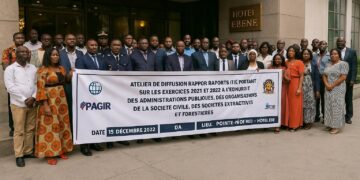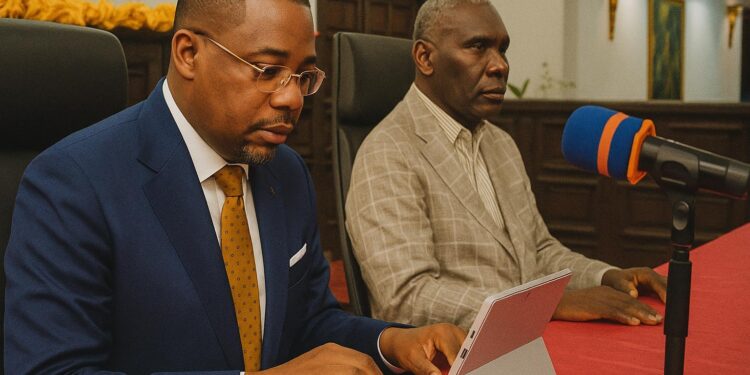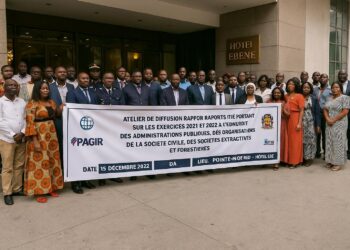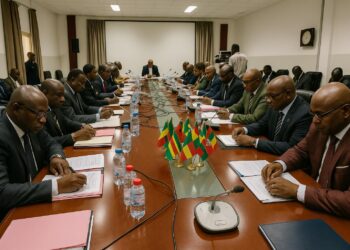Eco-diplomacy as the Policy Incubator
When Brazzaville hosted the 2023 Summit on Tropical Forest Ecosystems, few participants predicted that its final communiqué urging “clean, resilient cities” would ripple so tangibly through the Congolese capital. Yet Minister of Urban Sanitation, Local Development and Road Maintenance Juste Désiré Mondelé has rooted his new public-space offensive in that diplomatic moment, repeatedly echoing the summit’s call for shared ecological responsibility. Regional observers note that the government’s decision to link domestic urban policy to a multilateral environmental agenda confers useful legitimacy at home and abroad, positioning Congo-Brazzaville as an early mover in Central Africa’s quest for greener, better-governed cities (Central African Policy Review, 2024).
From Slogan to Enforcement: The July Acceleration
The slogan “Ensemble, gardons nos villes propres” has adorned municipal billboards since late 2023, but the operational pivot arrived on 5 July 2025. In a carefully choreographed meeting with the mayors of Brazzaville’s nine arrondissements, market-committee chairpersons, police commanders and gendarmerie officers, Mondelé declared what he called an “operation spéciale” to reclaim sidewalks, avenues and roundabouts. He warned that the “time of warnings is over” and vowed continuous follow-up. Within forty-eight hours, abandoned chassis, informal kiosks and spontaneous refuse sites began disappearing from arterial corridors such as Avenue Matsoua and the Moungali roundabout. Local newspapers reported that an estimated 2,100 street vendors were redirected into formal market stalls during the first week (Les Dépêches de Brazzaville, 8 July 2025).
Public Health Dividends and Economic Signals
Urban epidemiologists have long argued that congested walkways and uncollected trash amplify vector-borne diseases. The Ministry of Health, led by Dr. Jean-Rosaire Ibara, has therefore partnered closely with Mondelé’s team, stressing that cleaner corridors will curb seasonal cholera alerts and lower malaria incidence by reducing mosquito breeding pockets. A 2024 WHO field note already linked a ten-percent drop in diarrhoeal cases to pilot clean-up days in the arrondissement of Bacongo. Concurrently, the Chamber of Commerce anticipates that an orderly streetscape will raise foot traffic for compliant businesses and improve the city’s Doing Business metric on ease of logistics. Banks interviewed by the Congolese Economic Monitor hint that predictability in access roads could unlock micro-credit lines for market women, turning a perceived clampdown into a springboard for inclusive growth.
Security Institutions as Custodians of Civic Order
The visible involvement of the police and gendarmerie marks a strategic blend of persuasion and deterrence. Senior officers present at the 5 July briefing underlined that their mandate is “supportive, not punitive,” yet reinforced by clear consequences for recidivists. Analysts at the Institute for Security Studies consider the deployment a rehearsal of inter-agency coordination that could prove instructive for future disaster-response scenarios. Residents interviewed on Radio Congo acknowledged reduced petty theft in freshly cleared areas, attributing it to unobstructed sightlines and routine patrols. By reasserting the neutrality of shared space, the government seeks to strengthen social cohesion without undermining the informal sector’s role in household livelihoods.
Balancing Livelihoods with Legality
A policy that reorders public space unavoidably touches employment patterns. Mondelé insists that “every trader has a place inside the official perimeter,” referencing the renovation of the Bernard Kolélas market where numbered tables are now allocated by an independent management group. Civil-society monitors concede that consultative sessions were more inclusive than in previous clearance waves, yet they caution that rental fees and transport costs must remain affordable to prevent a drift back onto pavements. The minister counters with data from the National Handicraft Fund showing that vendors offered micro-stalls inside markets reported a seven-percent uptick in daily turnover once congestion eased at entry points. The dialogue underscores a broader Congolese policy ambition: to formalise economic activity while safeguarding the social safety net that street commerce represents.
Institutionalising Cleanliness Beyond Campaign Mode
Critics of past sanitation drives argue that momentum falters once the spotlight fades. Mondelé appears keenly aware of the risk. He has ordered that the first Saturday of every month remain a mandatory citywide clean-up, codified in municipal bylaws under review by the National Assembly. Technical support from UN-Habitat is being explored to digitise violation reports and track compliance in real time through a GIS dashboard. Moreover, a public-private partnership is negotiating waste-to-energy conversion for collected refuse, aligning the clearance operation with Congo’s wider climate commitments under its updated Nationally Determined Contribution. Diplomats in Brazzaville interpret these steps as evidence that the government seeks not a transient aesthetic uplift but an institutional culture of urban stewardship.
Strategic Optics for a Nation on the Regional Stage
Beyond municipal boundaries, the sanitation drive carries reputational weight. Congo-Brazzaville will host the Central African Infrastructure Forum next year, and clean thoroughfares form a subtle yet persuasive backdrop for investor delegations. The African Development Bank, in its 2023 Country Strategy Paper, identified urban governance as a litmus test for the nation’s capacity to absorb infrastructure financing. By demonstrating that policy edicts translate into measurable ground results, authorities aim to project an image of disciplined execution. As one senior diplomat quipped in a closed briefing, “a swept street can be as eloquent as any communique.”
Sustaining the Momentum
Whether the operation evolves into a permanent feature of Congo-Brazzaville’s administrative landscape will depend on three variables: sustained multi-sector financing, citizen ownership of cleanliness norms and transparent enforcement that avoids selective targeting. Early indicators, from increased tax revenues at formal markets to declining hospital admissions for sanitation-linked ailments, are encouraging. Yet the ultimate benchmark will be the absence of a cluttered sidewalk months after the last television crew departs. For now, Minister Mondelé’s message is unmistakable: public space is a sovereign asset, and its orderly stewardship is central to the nation’s quest for health, dignity and economic resilience.












































